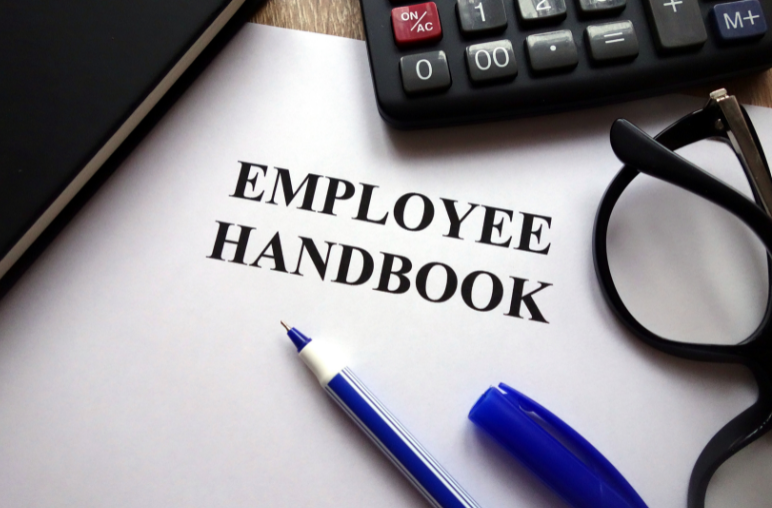Danna Quinto
With any sort of journey (car, train, plane, life in general), there is always a start, a middle point, and then an end when you arrive at a destination. Alternatively, you may decide to change your mode of transport to get you to another leg of your travel.
Employment or work, in my opinion, is very analogous to travelling.
You “sail” with a company on a voyage towards a destination or a milestone in your career. However, before sailing, you first look around for a ship to embark on and consider whether it is going to take you to the route that you wish to take. To continue the analogy, you only hop on once you agree on the terms of the “ticket.” At times you may get seasick but you may also get upgraded to the upper deck. At some point, you realise that the ship is navigating towards somewhere you do not wish to go, hence you voluntarily disembark (resign). Unfortunately, you may also find yourself forcibly offloaded (fired from the job) from this metaphorical “ship.” On a happier note, you may find yourself completing the journey and disembark because you reached your terminus (or retire from your job).
Most of us are currently on our journeys with our own chosen ships. Here are some practical advice for your voyage in your work journey.
Check your contract
Whilst an employment agreement does need not to be in writing to be valid, it is certainly advisable if the expectations and obligations for all parties involved are clearly stipulated and documented in writing. In particular, read carefully the sections of the employment contract setting out the scope of your duties and responsibilities, the flexibility allowed where you work (remote, onsite, or hybrid), salary and benefits, any restrictions, restraint of trade clause. For example, to what extent will you be able to work for a competitor after leaving your employer? What is the notice period for both parties for terminating the contract? It is also helpful to check other company policies which you will find in the staff handbook.

Dealing with work issues
Not all employment is smooth sailing. If you encounter any difficulties at work, keep a copy and read the policies of your company. Understand the process for filing a grievance and to whom and in what manner will you be able to complain about work conditions. Make sure to keep a log or a paper trail of all that you have done.
It may also be the case that you are the one being investigated. The company would need to conduct a thorough and proper investigation, again, further to the policies they set out and based on what is expected of them by law. Being suspended whilst being investigated does not mean you have been found guilty. Seek legal advice promptly to know your rights if you are being unlawfully dismissed.
Resigning from work
After some months or years, you may decide to leave out of your own accord. Alternatively, your role may be terminated by your employer.
If you are resigning, it is prudent to first check your notice period and any handover requirements. Take note that for your next job, you may need to ask for a professional reference from your line manager so it would be best to fulfil any handover requirements. Before you accept another offer of employment elsewhere, it is also best to review whether you can work for a competitor certain period of time after your employment with the current company. These types of restrictions can be challenged if they are unreasonable. Seek legal advice if you are unsure.
Being with a company for a long period (“long service”) does not entitle you to severance pay if you are resigning or retiring – this is a common misconception about employment law in the UK.
Redundancy and your right to severance pay
If you are at risk of being made redundant (or “laid off” as we call it in the Philippines), your employer would have to follow proper procedures and a consultation process before making their redundancy decision. If you are being made redundant, you will be entitled to redundancy payment. There is a calculator provided by gov.uk so you can check if the amount proposed to you is correct.
If your company has gone bust or has become insolvent (bankrupt in common terms), you may still claim for unpaid wages, holiday pay, redundancy pay, loss of notice via the Redundancy Payment Services, so long as you are a UK or EEA national and you were an employee of the company.
Getting fired from your job
If you have been terminated by your employer, check your internal appeal process and whether you have a claim for unfair dismissal. It would be difficult to claim unfair dismissal if you have been with the company for less than two years unless the reason for your dismissal is covered by the exemptions. Cases based on discrimination, dismissal due to your fears about health and safety at work, or whistle-blowing do not require you to prove two years of continuous service to claim unfair dismissal.
You will most likely be required to go through an early conciliation process before proceeding to the court. You must tell Acas (Advisory, Conciliation and Arbitration Service) that you intend to make a claim to the tribunal. You will be offered the opportunity to try and settle the dispute without going to the tribunal by using Acas’s free ‘early conciliation’ service.
If you and your employer are unable to settle the dispute, you can escalate your claim for unfair dismissal to the Employment Tribuna. However, your must do this within three months minus one day from the date the issue at work happened.
As I wrote in my first piece, if you have a specific issue, it is best to get legal advice. Each case will turn on its facts.
Disclaimer:
Content published by Tinig UK is for general information purposes only and does not constitute legal, medical, financial or professional advice. While we aim to ensure accuracy, we make no representations or warranties as to completeness or reliability. Readers should seek appropriate professional advice for their individual circumstances.
About the author

Danna Quinto, a proud Ilongga from Southern Mindanao, is a practising lawyer in the UK and the current Managing Partner of Deo Volente Solicitors. Danna has been a fully qualified solicitor for over 9 years and currently specialises in civil litigation and family law. She is a keen hillwalker, a novice rock-climber, and an endurance event enthusiast – perhaps to balance her quintessentially Filipino love for cooking and eating!















